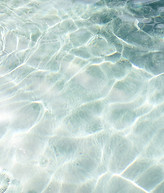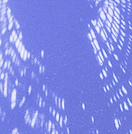
Neuchâtel Library
The Library
for a Happy Future



Mapping our Relationships
to Water
The Library for a Happy Future aims to strengthen our relationships, our sense of care and connection to water.
The Library for a Happy Future is a transdisciplinary social enterprise: We bridge scientific innovation, artistic expression, and ancestral knowledge to advance integrated solutions for planetary health (One Health) and collective wellbeing (One Wellbeing), with freshwater and marine ecosystems at the core of its mission.
Our aim is to map our external and internal relationship with water - sweet and salty - encompassing all parts of life; agriculture, mental and physical health, economic relationships, environmental issues, spiritual connections, power asymmetries and so on.
While the One Health/One Wellbeing paradigm is globally recognized, actionable strategies to translate knowledge into equitable, community led practices remain scarce. The Library for a Happy Future addresses this gap by combining participatory action research, art based storytelling, and regenerative entrepreneurship to empower communities to codesign solutions and collective practice to take of water systems.

















A Dialogue between Generations
The Library for a Happy Future is a travelling project that connects communities along different bodies of water: springs, rivers, lakes, the ocean. Its collection is created and filled with the experiences and contributions of each community that becomes part of
our network.
Our approach focuses on local priorities, but also seeks to connect the individual libraries - eight in all - through
a common research agenda. Are there overarching findings and needs? How can we learn from each other? What are the ideas and seeds of change that could inspire the libraries? How can a positive attitude towards the future promote concrete action and well-being?










Our initiative reframes "a happy future" through the lens
of planetary boundaries and social ecological resilience, emphasizing that human prosperity is inseparable from thriving ecosystems and interspecies equity.
During resident libraries, we explore water and its connection to the idea of a good life, health and community well-being over the course of several months,
By involving the community in the research process, action research ensures that the solutions developed
are contextually relevant and socially acceptable, laying the foundation for long-term sustainable development and One Health goals.
Listening to each other across interests and
generations is essential. Our methods are based on
the principles of action research: Action research is a participatory approach to problem solving that involves collaboration between researchers and practitioners to address real-world problems.
How does our library work?
.jpg)

One Health and One Wellbeing
Our approach seeks to frame our relationship with water - sweet and salty - in a very personal way. The aim is to move away from thinking about water as a necessary commodity to feeling and thinking about
our deep relationship with this precious good. Water and all parts of nature have an emotional and cultural value that affects our physical health and emotional wellbeing. We are connected to water through our hearts and bodies. We are water.
The Library for a Happy Future reminds us of this deep connection and asks how the shift from resource to relationship might affect
our priorities as a society.
The concepts of health and well-being are considered in a culturally grounded way, but with an emphasis on the collective and communal interconnectedness, including animals, non-human actors and ecosystem health, as in the idea encorporated in One Health and
One Wellbeing.
Our collection includes two types of resources: Scientific and Artistic Resources. We try to appeal to different people and different ways
of processing knowledge: feeling and thinking.



The libraries are located in different parts of the world
and should interact with each other.
The results of each edition will be made available to local policy makers and to different library editions around the world. The project is planned to last 5 years (until 2029)
and was formally launched in 2024 in the community of Vals, Switzerland, after a pilot year (2023) in Zurich.
A central repository called "The Water Library" is planned, including other solutions around the theme.

A growing
network

Information
about the Library
Events. Join us and enjoy!
Results and contributions










